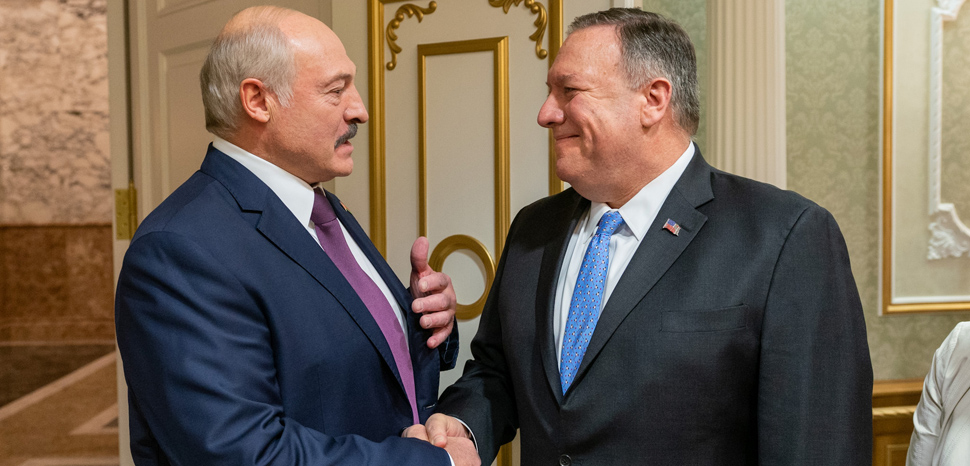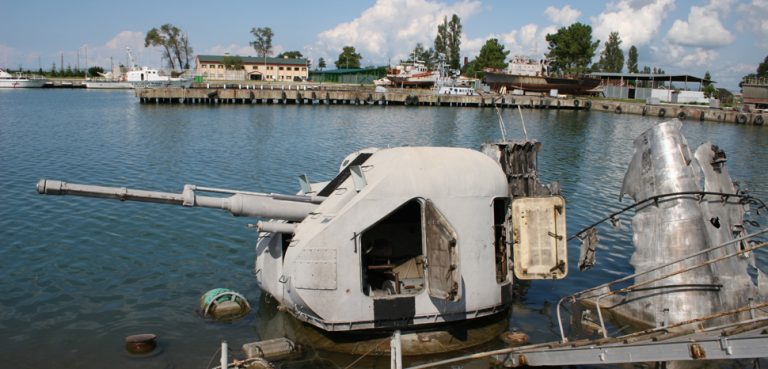Statistics are always a test for dictators, and the best of them must make unbelievable numbers somewhat believable. The COVID-19 pandemic has been a perfect illustration of how authoritarian nations control statistics.
The most severe and repressive dictatorships completely deny they have a problem, and the country is so shut-off from the rest of the world that no one can know the truth; such is the case of Turkmenistan. The least efficient dictatorships attempt to control the statistics, but eventually they give in to the overwhelming evidence and are forced to report more believable statistics, like in the case of Tajikistan. The most effective dictatorships however, know how to make unbelievable numbers somewhat believable; this is Belarus.
Radically skewed statistics have always been a telltale sign of the corrupt and the despotic, but why do countries fake their number though? Well, they generally do this because dictators always try and present their societies as being perfect, and being coronavirus free or faking the numbers to make it seem like they have the situation under control is no exception. Yet in the case of Belarus, at least in this instance, there is more to the story than first meets the eye.
Belarus has always maintained a veneer of normalcy, but make no mistake, it’s a dictatorship. According to the Democracy Index report from 2019, Belarus is ranked 150/167 nations; finding itself in the second-lowest category of “authoritarian” countries, behind such democracy-loving states as Cuba, Afghanistan, and Venezuela.
In April, I made the prediction that Belarusian President Alexander Lukashenko was gambling that the coronavirus situation would blow over soon, and that the president’s reckless coronavirus strategy would lead to a rise in dissent towards the government and upset the very precious sense of stability that Lukashenko needs in order to remain in power.
A month and a half after writing that article, Belarus has seen a more than fifteen-fold increase in coronavirus cases. In fact, their cases per capita – at about 5,300/million – are amongst the highest in the world, higher than even Italy or the UK. My predictions of social unrest in authoritarian Belarus have as of yet only manifested into some small-scale protests in Minsk against the president and his regime. However, no matter the size, protests in Belarus are significant in itself.
One way in which Belarus has managed to supress most social unrest during a clearly mishandled and severe national health emergency has been simple: fake the numbers. Their tactic is to report mostly-accurate coronavirus infection numbers, but simply falsify the death toll. The authorities know it’s impossible to hide the scope of the infections, it’s too widespread, but it is possible to supress Covid-19 related deaths in order to mitigate their situation and calm the populace.
As a country that holds regular elections that always run smoothly and predictably – this is of course a country that purports to have an 80% turnout rate, yet not a single opposition candidate can win a seat in Parliament – President Lukashenko is quite astute at skewing numbers.
The situation becomes glaringly obvious when contrasting Belarus to a similarly sized and effected nation. At a comparable population of about 10 million each, Sweden also has a somewhat-similar amount of cases to Belarus (4,471 cases/million to 5,233/million respectively as of June 8), and both nations are also unique in the fact that they chose to avoid a lockdown.
One area in which the two countries differ drastically however, is in their death rate. Sweden has reported 4,694 coronavirus deaths (465/million) while Belarus has reported just 276 (29/million). For the amount of per capita cases Sweden has, they are well within range of other similarly effected countries when it comes to deaths. Belarus, as a country not know for having a fantastic health system in the first place, is clearly way out of that ‘normal’ death range.
Although there is little hard evidence coming out of authoritarian Belarus that could definitively prove the government is faking their death statistics, there is an overwhelmingly good chance they are. Neighbouring Russia for instance, has numerous claims of faking their coronavirus statistics. In one case, the Moscow Times reported that “Moscow recorded 20% more fatalities in April 2020 compared to its average April mortality total,” but the official coronavirus-related deaths in no way reflect this total. The Financial Times has also reported that Russia’s death toll “could be 70 per cent higher than the government’s official data show.” We also know that Russia’s healthcare system often attributes the cause of death to other circumstances, even if the patient was diagnosed with COVID-19. In the Ural region of Chelyabinsk, only 13 people officially died of coronavirus, even though statistics indicate 18 people tested positive before dying.
It’s important to keep in mind that even with this exposed number-fudging, Russia is still reporting a higher death toll per capita than Belarus, while it’s Belarus that has significantly more cases per capita. Therefore, it is almost certain that Belarus is using similar tactics, and they may be using them even more liberally.
This brings us on to the all-important question of why Belarus is doing this? The simple answer: Russia.
Belarus is currently entangled in a geopolitical struggle that could cost them their independence. As reported in the National Interest, Yes, Moscow Is Trying to Make Belarus a Part of Russia, and issuing fake statistics may be vitally important for Belarus in maintaining their stability and independence.
As the post-Cold War years have gone on, Belarus has increasingly become a more important geopolitical player in Europe, often finding itself pandered to by both East and West, while also maintaining a strong and growing relationship with China. However, Moscow has always had the most influence in Belarus, and has often viewed the country as little more than an appendage of Russia and a historical anomaly which should one day be reunited under Moscow’s rule. In recent times, Russia has even been strenuously pushing for a so-called Union State between the two nations.
The Treaty on the Creation of a Union State between Russia and Belarus was signed on 8 December 1999. In it, Russia and Belarus agreed to eventually set up shared economic and social policies, as well as plans to implement a single currency and parliament. Both nations must agree for further integration to take place though, and Belarus, fearing that integration would mean a loss of sovereignty, has dragged its feet for years.
At one point, the back and forth between Moscow and Minsk became so heated that President Lukashenko stated on a Russian radio interview that “If Russia tries to violate our sovereignty as some people say, you know how the global community will respond; they will be drawn into a war… The West and NATO won’t tolerate that, because they would see it as a threat to themselves. In that sense, they would be right.” Due to Belarus’s Union State refusals, it has even found itself the victim of an oil and gas war with Russia.
Furthermore, Belarus has upcoming Presidential elections in August, and accurately reported deaths could be used by Russia in order to orchestrate social unrest that could derail the Lukashenko’s bid for a 6th term. In fact, Russian attacks on Belarus’s sovereignty and independence are already taking place.
In recent weeks, Belarus has come “under a large-scale disinformation campaign from various Kremlin-connected Russian media and Telegram channels regarding the COVID-19 pandemic situation in the country.” The core narrative seeks to blame the Belarusian regime for inaction and ignorance of the pandemic and the goal of Moscow’s propaganda campaign is to “undermine trust between Belarusian society and the authorities.”
Belarus does not have a strong civil society capable of pushing back against Russian influence in the country, and if coronavirus deaths were being accurately reported, it could would be used by Russia to fan the flames of dissent in Belarus even more. Worse, it could even provide Russia with the loose justification they need to directly or indirectly step-in and remedy the situation (à la eastern Ukraine).
During the Union State dispute, the United States has used this opportunity to re-engage with Belarus. Secretary of State Mike Pompeo travelled to Belarus in February to meet with President Lukashenko and his officials, and pronounced that “The United States wants to help Belarus build its own sovereign country. Our energy producers stand ready to deliver 100% of the oil you need at competitive prices.”
By May 15, Pompeo was already announcing that the first shipment of U.S. crude oil would be departing for Belarus that week. The turnaround from proposal to done-deal has been astoundingly quick, and Pompeo looks to further capitalize on the Belarusian-Russian dispute by urging “Belarus to increase the access of American businesses to its market and undertake the market-oriented, trade-liberalizing reforms.”
Although it may look like an opportune time for the United States to insert itself into the affairs of Belarus, and for Belarus to openly engage with the United States, this strategy may backfire for both nations. Russia may believe the possibility of radical change taking place in such a vital area of their perceived sphere of influence to be too great, and act belligerently to stop it.
With the on-going row with Russia and flirtations with the West, it is no wonder that authoritarian Belarus is now purposely controlling their coronavirus statistics. With the upcoming election, President Lukashenko needs to make sure that his grip on power is secure, and this entails controlling information that would look badly on his rule.
Tensions in Belarus stand at a knife-edge. The country could very well fall victim to a Ukraine-style annexation if social unrest were to become widespread in the country. The winds of change are once again blowing in the post-Soviet space, but unlike the freedom and independence it brought Belarus in the 1990s, these new winds could be an ominous omen of their future subordination.
This article was originally published on June 15, 2020.
Michael Belafi is a political-military analyst based in Brussels, Belgium with subject matter expertise in central/eastern Europe and the post-Soviet space. His thoughts are his own.




